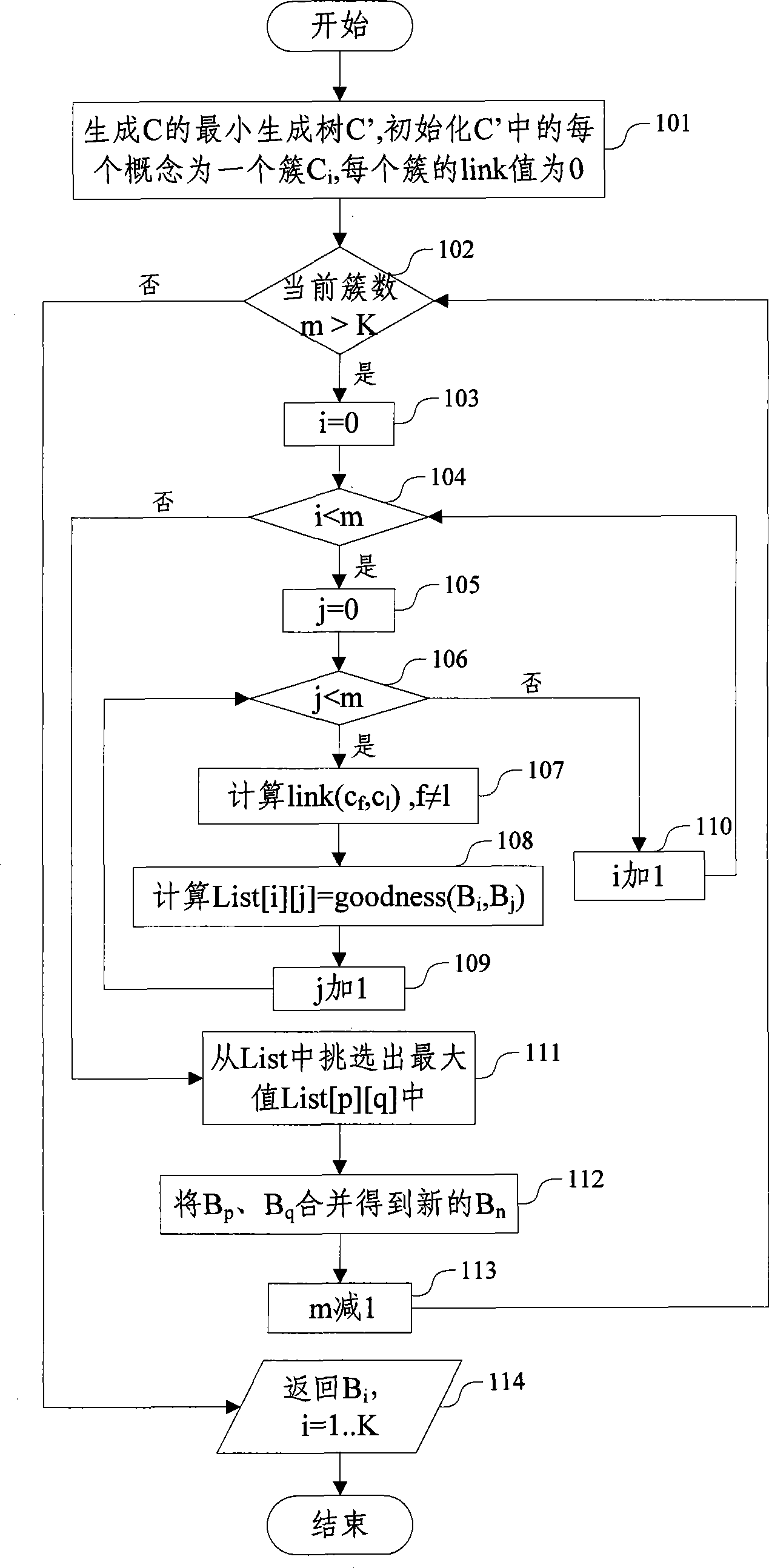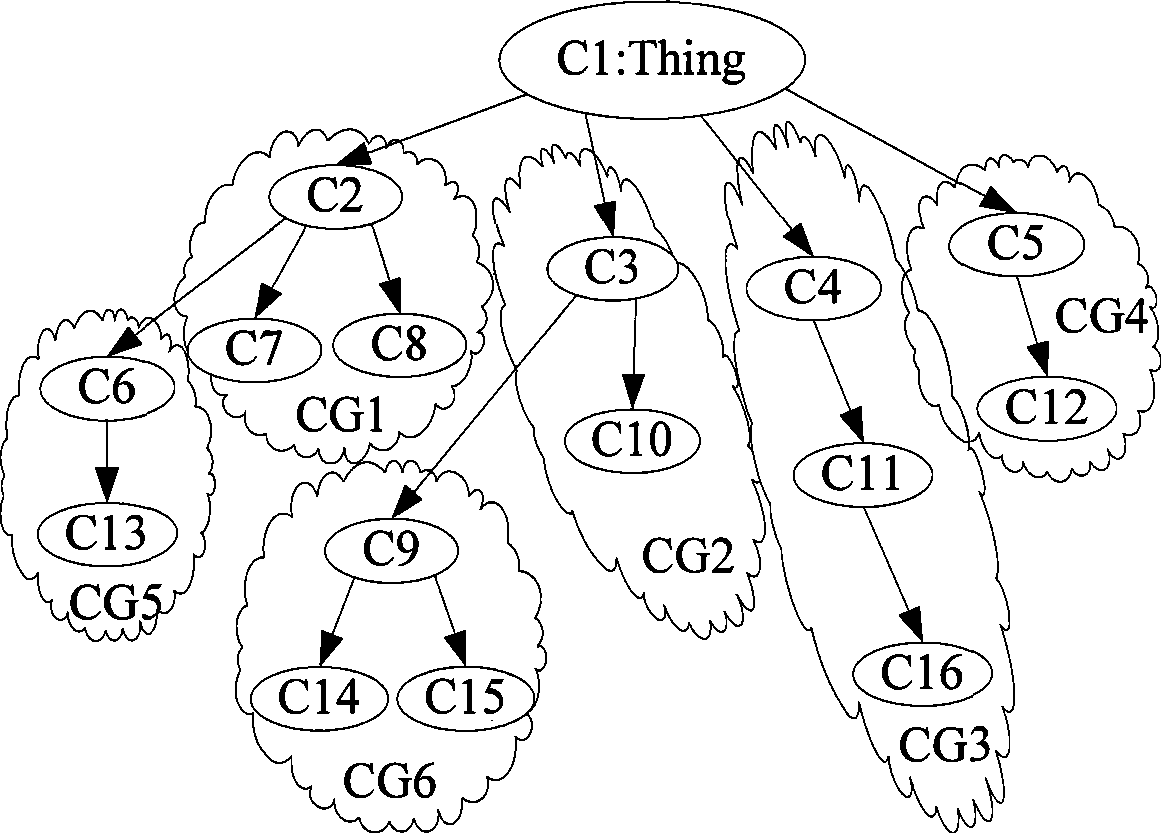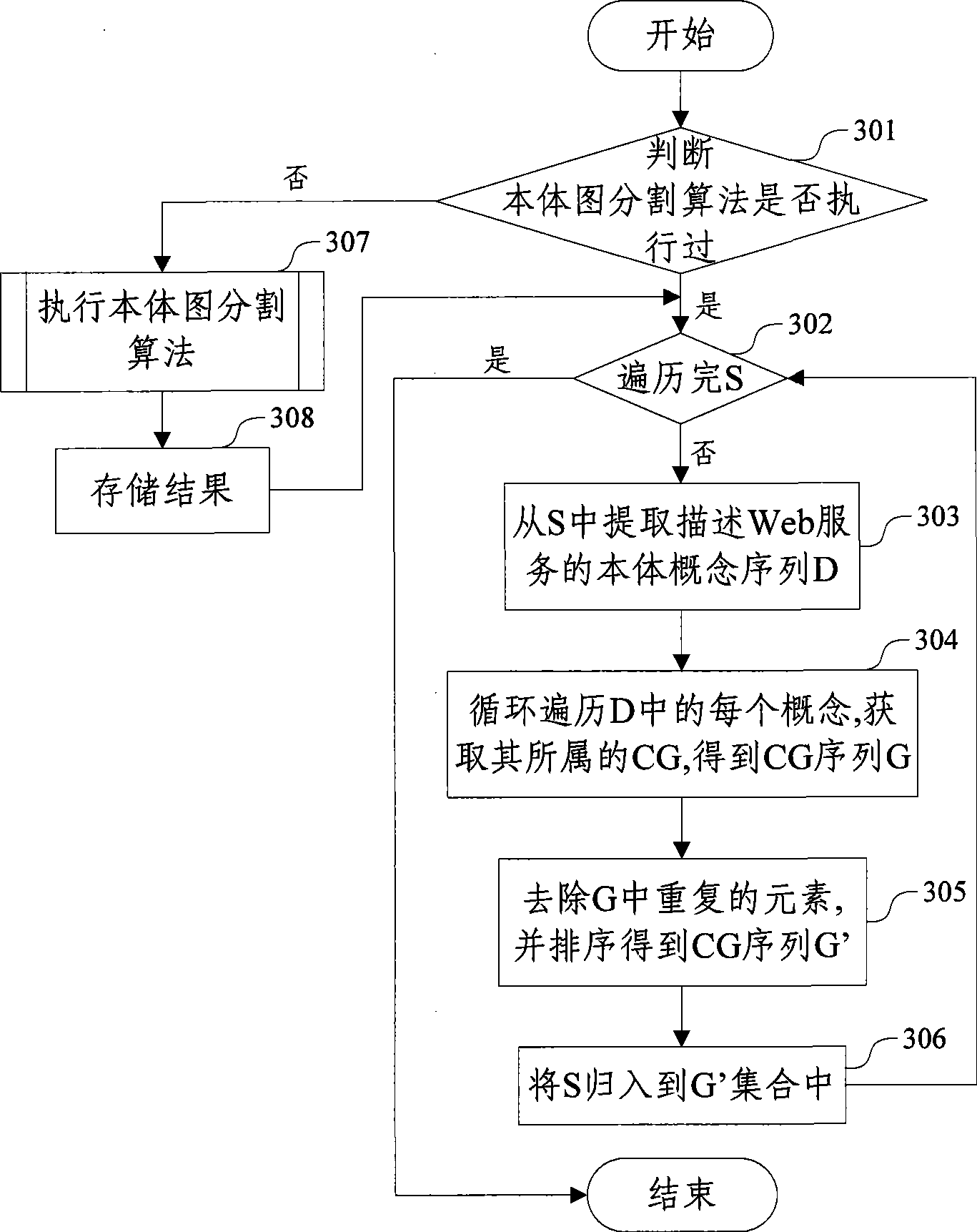Service positioning method
A positioning method and a technology for positioning requests, applied in the field of service management, can solve problems such as inability to get rid of query efficiency, affecting the efficiency of Web service discovery, recall rate, and precision rate without much improvement.
- Summary
- Abstract
- Description
- Claims
- Application Information
AI Technical Summary
Problems solved by technology
Method used
Image
Examples
Embodiment Construction
[0056] The present invention provides a distributed service discovery system oriented to semantic Web services. The distributed service discovery system cuts the ontology graph into multiple concept areas (CG, ConceptGroup) through the ontology graph segmentation algorithm, and the concepts in each CG The semantics are similar; and the semantic description information of the service is converted into a CG sequence, that is, the code that generates a variable-length concept region combination sequence; at the same time, the nodes in the distributed service discovery system correspond to the concept region sequence, forming a structured semantic P2P network. Web service discovery is achieved through a strategy based on prefix-semantic routing that supports conceptual region sequences.
[0057] If the ontology graph is divided into K CGs, the length of the CG sequence corresponding to the service query request is L, where L≤K. Distributed service discovery can find the node set o...
PUM
 Login to View More
Login to View More Abstract
Description
Claims
Application Information
 Login to View More
Login to View More - R&D
- Intellectual Property
- Life Sciences
- Materials
- Tech Scout
- Unparalleled Data Quality
- Higher Quality Content
- 60% Fewer Hallucinations
Browse by: Latest US Patents, China's latest patents, Technical Efficacy Thesaurus, Application Domain, Technology Topic, Popular Technical Reports.
© 2025 PatSnap. All rights reserved.Legal|Privacy policy|Modern Slavery Act Transparency Statement|Sitemap|About US| Contact US: help@patsnap.com



